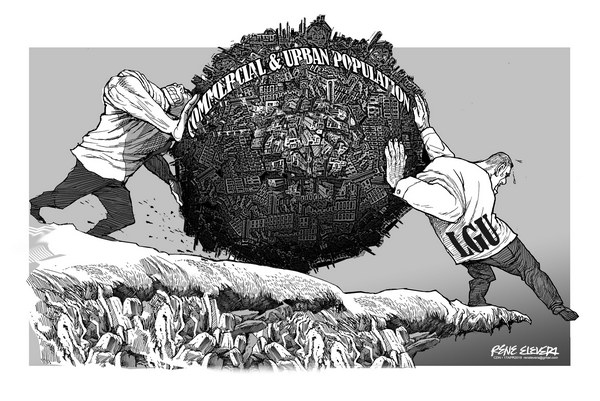
Ever since President Rodrigo Duterte issued the closure order on Boracay after its residents and commercial businesses failed to solve the water pollution that they caused, local governments in Cebu have suddenly become proactive in cleaning up their surroundings.
Among them was Oslob town whose personnel collected up to 2,000 kilos of garbage from a seven-hectare area in Sumilon Island last week. They closed the sandbar for the long delayed cleanup which we hope would become the norm among those living in the area.
They were followed by Lapu-Lapu City Hall which plans to clear the shanties near the beaches of Mactan Island due to the water pollution caused by its settlers and the businesses located near the three-meter easement zone.
Belated and knee-jerk these cleanup initiatives may be, at least Cebu’s local governments are doing something so they can keep their tourism destinations open for visitors.
Moalboal town has prohibited tourists from setting up tents in their beaches while the Daanbantayan municipal government is working with residents in Malapascua Island to continually ensure that their area is clean of garbage.
But the six-month Boracay closure should also teach us one valuable lesson, something that if applied by local leaders may also cure the urban blight of traffic, pollution and collapsing services and infrastructure.
And that lesson is about avoiding overpopulation in the country’s urban centers which is nearing or has already exceeded its limits in housing the thousands of people moving into the cities to find work and start a family there.
The obvious solution would be creating economic opportunities in the countryside by building roads and other infrastructure in order to entice investors to set up shop and expand their businesses there.
It’s easier said than done and moving people out of the urban centers and into the countryside involves no less than the combined resources and political will of the national government and the local governments but we don’t see that happening anytime soon.
Which is both a major letdown and a crying shame, since local governments often measure their clout within the sphere of national governance by the sheer number of voters in their area, never mind if their constituents live in slum areas and are forced to beg for relocation sites whenever they are told to move out of rivers and easement zones.
The Cebu provincial government has failed to provide alternatives to its constituents to keep them from moving into Metro Cebu and contributing to the congestion that forced LGUs to lobby for projects to expand infrastructure and maximize limited living space.
But the administration is too preoccupied with its war on drugs and federalism initiative to even notice this perennial problem.